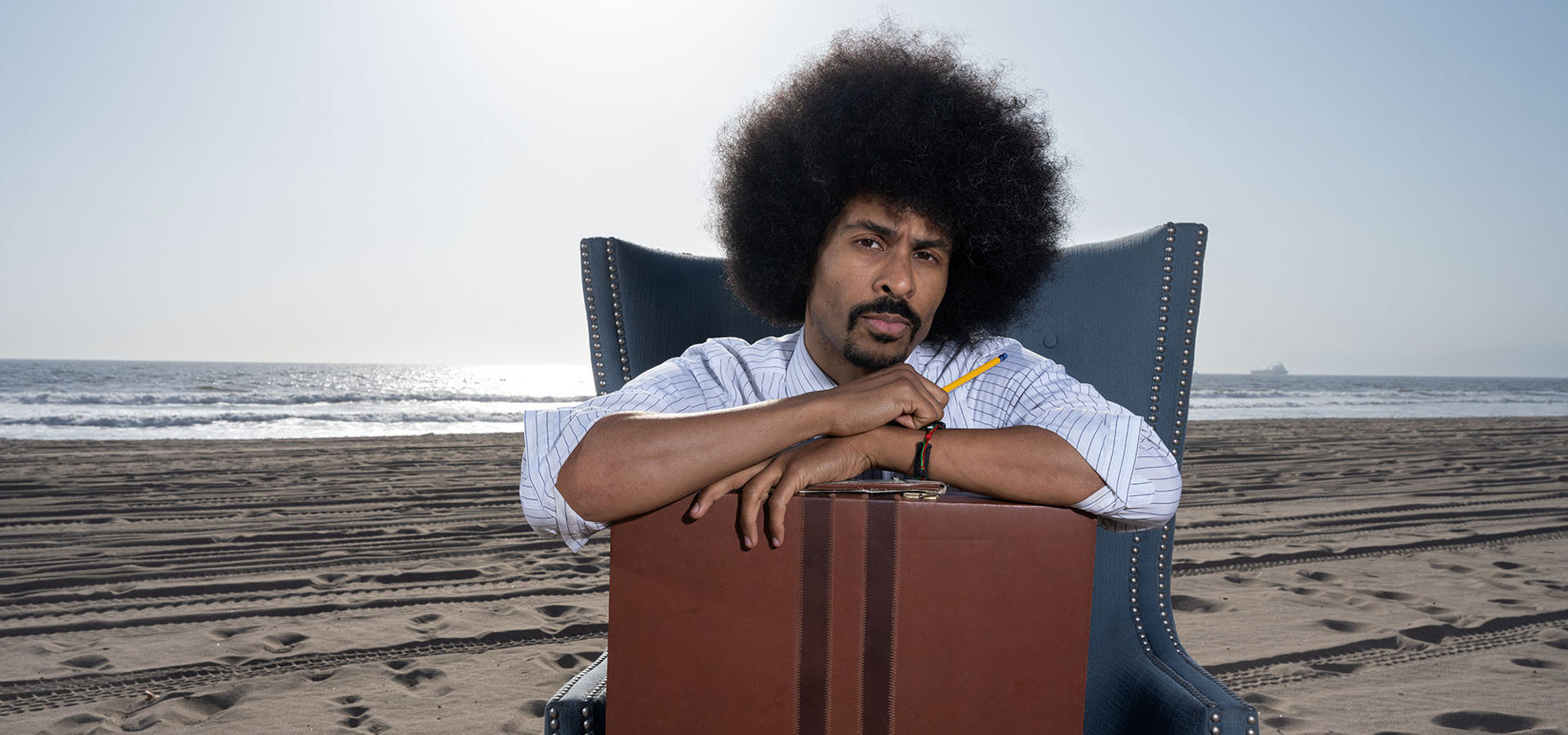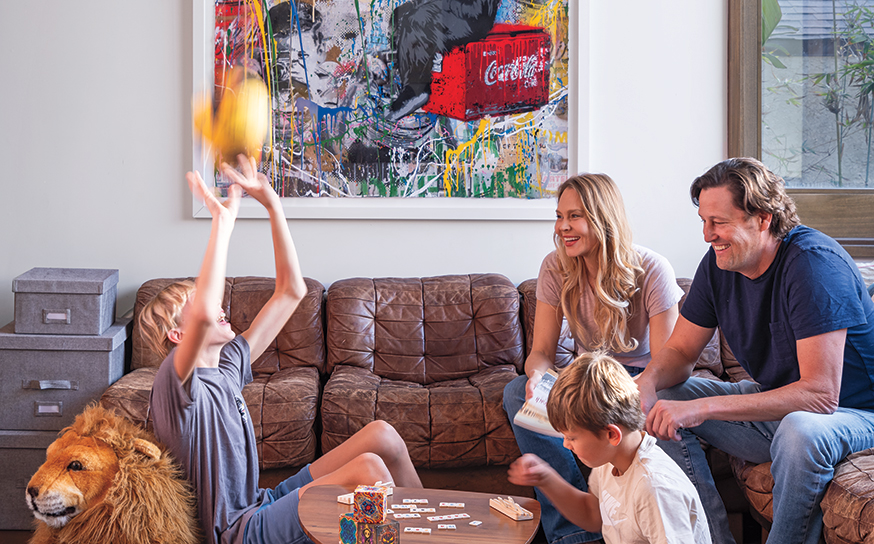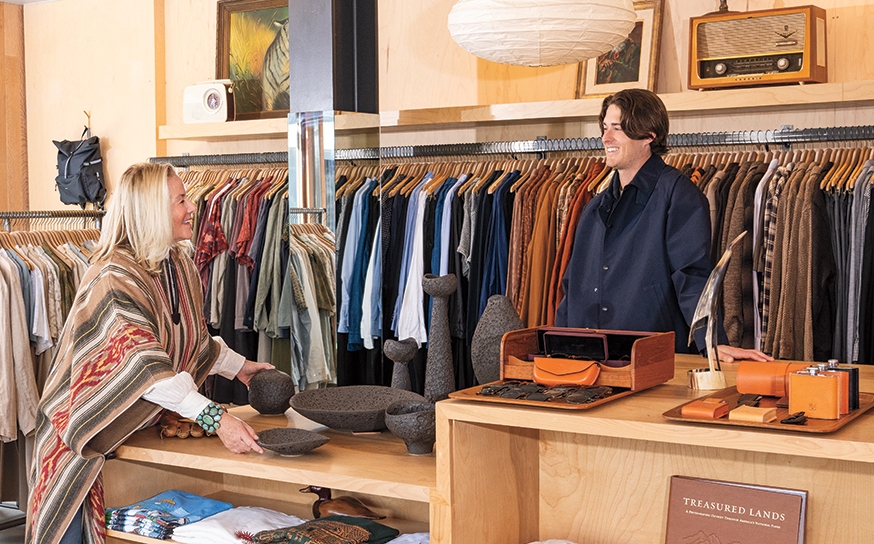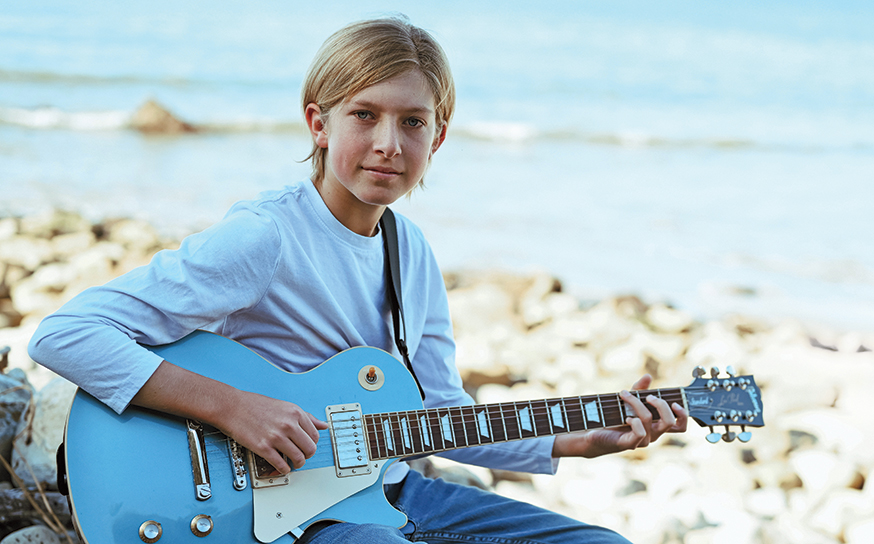Sean Hill Wants to Leave This World a Better Place, and He Hopes His Poetry Inspires You to Do the Same
More than words.
- CategoryPeople
- Written byAmber Klinck
- Photographed byMonica Orozco
In some way, large or small, cancer has touched most of our lives. In Sean Hill’s case, the disease has stolen a grandfather, an uncle and a dear family friend. It also threatened to take the lives of his parents. So when Sean’s friend Trice Johnson, a cyclist at CycleBar, suggested the actor and poet speak at the ninth annual Tour de Pier—a Manhattan Beach event that raises funds for cancer research and support—Sean jumped at the opportunity.
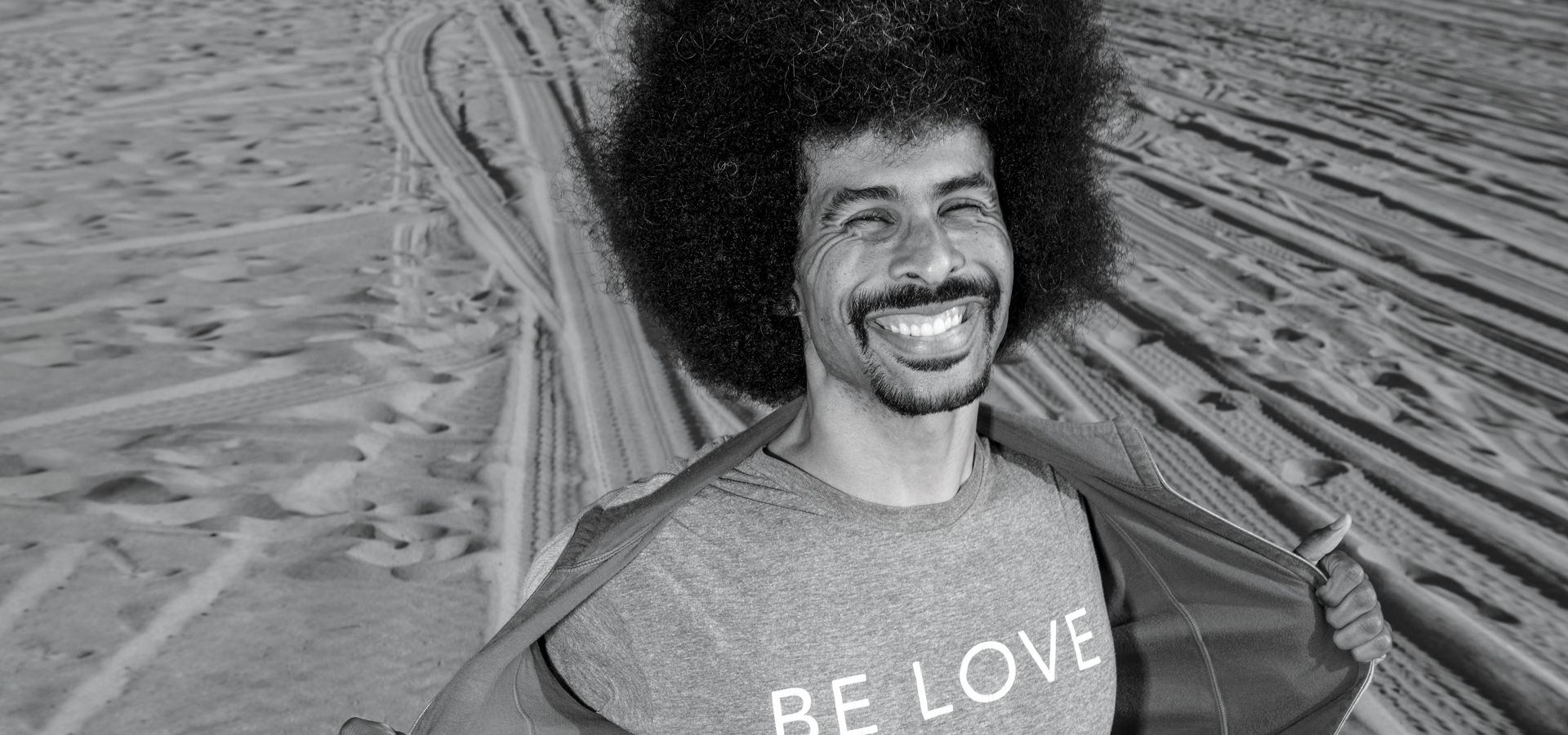
“Anything with cancer-related organizations, I’m totally going to support,” he says. “And once I got there, it was magic—good-hearted people and a good atmosphere. Reading in front of people cycling was definitely a new experience as a poet. It was so fun.”
Sean was only a kid when his mother was diagnosed with thyroid cancer. “I don’t remember it being big and scary,” he says. “I remember it felt like a sad time, or maybe that we weren’t as happy in the moment. It felt like something was off, and I remember just wanting to treat her nice.”
His father’s diagnosis felt different. Sean was older, and so was his dad. The news carried more weight—even if the delivery was somewhat lighthearted.
“He’s such a funny guy,” Sean notes as he describes the way his father announced he was sick. Sean, his sister and his dad were watching a show or movie together. “There was a character that had cancer and he said something like, ‘Oh man, that’s rough. Well, I got that.’”
Once the initial shock wore off, the family was relieved to learn the cancer was discovered early. Both Sean’s mother and father were lucky. “They recovered,” Sean says. “My dad’s still recovering right now from a recent cancer just last year. He’s had cancer three times now.”
Sean’s grandfather (his mother’s father) passed away from liver cancer. “His story is a classic hardworking-immigrant story,” Sean says. “He left Colombia and got a job in New York with Pan Am airline when they were still in business. He was an engineer and saved up enough money to bring over his whole family.”
It was that hard work and sacrifice that enabled Sean’s parents to meet in Harlem. “They met at a Kodak shop,” Sean notes. “He saw her face, and he fell in love with her so quickly. All he could see was her face because it was winter, and it was so cold.”
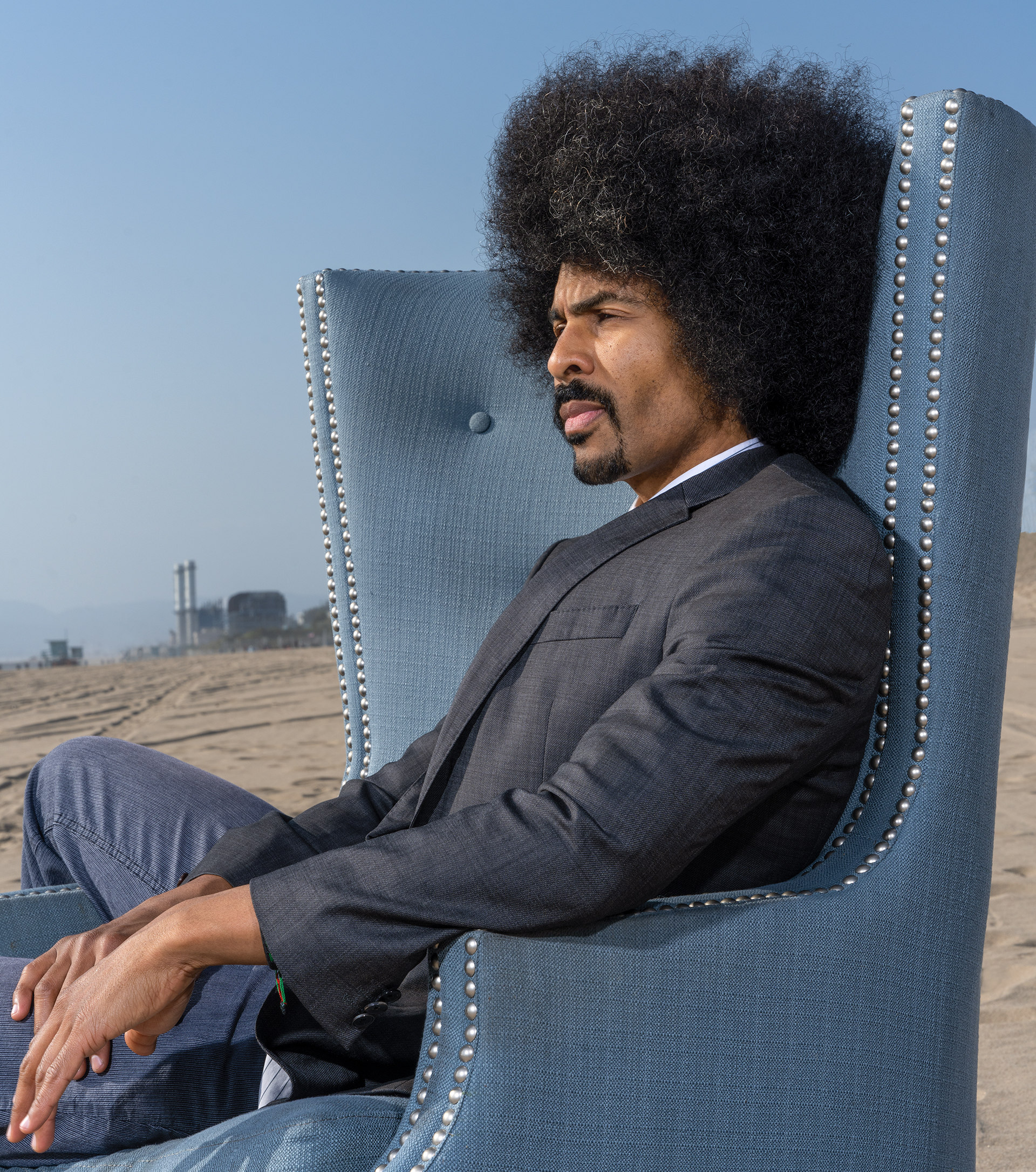
The pair eventually moved to Los Angeles. “It’s a magical story to think about for sure,” Sean says, “a living love poem.”
Raised in Inglewood, Sean has two older brothers and one older sister. “I remember my brother always sharing with me these rap poems he would do. He was a good kid with bad timing, and he got caught up in a gang. There was a lot of teenage angst in the poetry but in such a vivid way. It was easy to connect with what he was feeling or going through. I always felt good after he’d share that. I always felt like I wanted to do that too.”
Sean started experimenting with his own writing style. “It was just silly poems at first. Gangster rap was big at the time, so I’d pretend to write a gangster rap kind of poem, but it never felt right. It was when I started writing about things that were real to me, or personal to me, that I started getting the actual benefits—healing and creative. And whenever my brother shared with me, I noticed that’s what he was doing too. He was getting healed every time. He felt better every time.”
In order to get his brother away from the gang, Sean’s family moved him to New York. “Gangs are not much into the two-week-notice kind of stuff,” he notes. “You either leave through jail, or you leave by getting killed. You just have to get out and not tell anyone. So we did that and sent him to New York to live with our grandmother.” Sean would visit, and the two would write letters back and forth.
Sean met his next writing influence in high school. “I had a creative writing teacher named Mr. Klima. He was that super outgoing, enthusiastic, supportive teacher. The way he inspired me was like everything a young kid needs at the time.”
As a youth, Sean was introduced to writing as a form of creative expression. It could be playful, cathartic, whatever you needed or wanted it to be. As he got older, he discovered how much power words could wield.
“When I got to college, it got real for me,” Sean shares, “when I learned how much poetry has influenced great minds, great leaders, great thinkers … the power in effective language.”
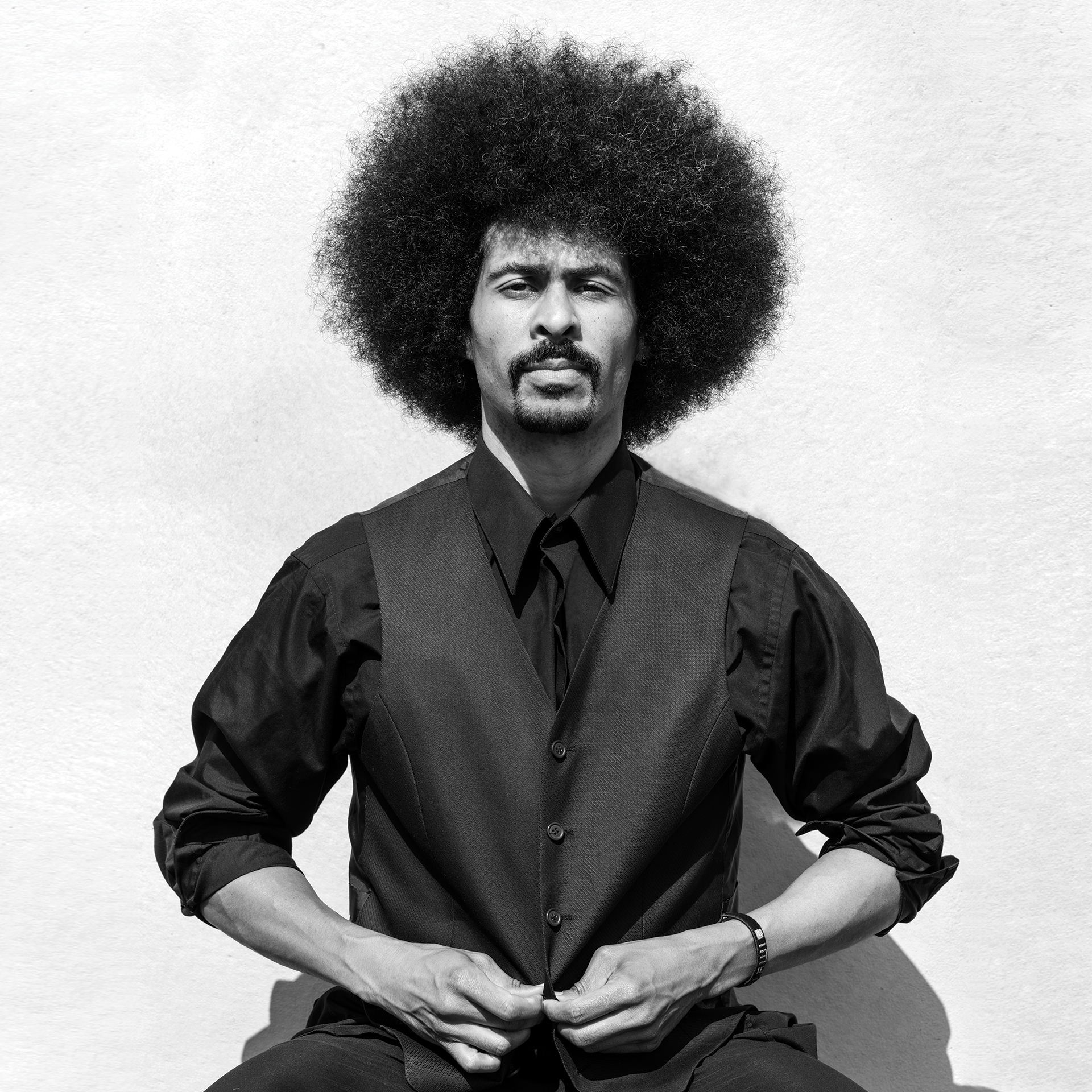
He took a hard look at the different ways people were sharing poetry. “A lot of people share therapeutically to get things off their chest with very personal, very intimate poems. Some poems are trying to convince you of something to believe in, a cause or something bigger than yourself. And there are so many abstract poems, where I’m like, ‘I don’t even know who I am right now after that poem. Is this all a dream? Am I even real? What did you just do to me, bro?’”
Sean wasn’t trying to do something that had never been done before. “A lot of the stuff I’m saying has already been out there; it already exists.”
But he did want his poetry to engage his audience. He says, “I’m trying to do a combination of theatre, of poetry, a little splash of hip-hop, a rhythm and flavor that draws in enough people.”
But he goes a bit further than engagement. Sean wants to empower his audience.
“What kind of solutions exist in the world that feel real for people, or feel palpable, or give people an inspiration that feels like they can do something to make this world better? I started thinking that in every poem, I want to put enough of a vision, enough of a problem and enough empowerment to give by the end,” he explains. “Because once you feel like you’re infinitely capable of something, then what would stop you?”
This year marks the 10th anniversary of the Tour de Pier, and once again, Sean was happy to participate. “To read to this very large outdoor room, so many things are happening visually. There are people dressed up in costumes. There are families rooting for riders. There’s a bit of everything,” he says.
With so many people coming together to ride in solidarity against cancer, Sean’s words of empowerment are exactly what they need to hear.






